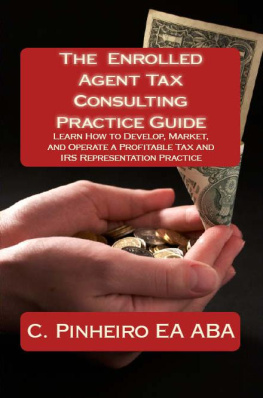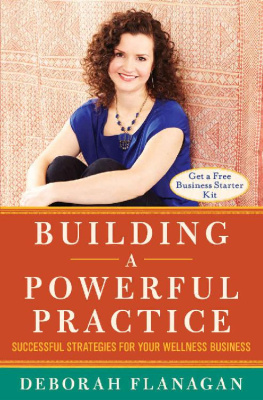About the Author
Bert Holtje founded James Peter Associates, Inc. in 1970. The firm served as an independent book producer and literary agency, and provided consulting, editorial, and promotional services until it was sold in 2000. JPA represented eighty-seven authors of nonfiction books and placed over six hundred books with major U.S. and world publishers. It also provided extensive direct marketing services to Prentice-Hall, McGraw-Hill, and other book publishers. Bert Holtje is the author of eleven books published by major publishers under his own name and more than twenty others as the collaborator or ghostwriter. He has BS and MA degrees in psychology and marketing. His editorial interests include business, psychology, self-help, science, technology, history, and politics. Bert now provides consulting services to authors, agents, and publishers which include ghostwriting, proposal development, manuscript development, and collaboration. He lives in Tenafly, New Jersey.
Appendix A
Educational Requirements and Sources
Most consultants never take a course in a subject called consulting. However, they have had extensive training and experience with the subject on which they consult. There are many distance-learning courses advertised on the Internet that might be of some help. I suggest that you check them out, but dont jump at any of them until you have determined exactly what you feel you need to know in order to practice your profession effectively. You will probably discover that your work experience has already qualified you as an expert in the field in which you want to consult. You will also discover that you might need to improve your support skills, and these usually include financial management, sales and marketing, and the nuts and bolts of running a small business.
Once you have a handle on your needs, check out either distance-learning programs that address these subjects directly, or enroll in any of the continuing education programs that might be offered by local schools, community colleges, and colleges and universities with appropriate programs and courses.
Many colleges and universities also offer courses and programs in specific areas of consulting. For example, Ball State University offers a Certified Training Consultant program based on a series of six three-hour seminars. Those completing the course are entitled to use the designation of Certified Training Consultant (CTC). You can check out this program at bsu.edu/cor/ctc/.
Many professional associations and organizations now work with colleges and universities on subject-specific consulting training programs. Check with any of the associations you belong to in order to see what might be available in your field.
Appendix B
Organizations
There are organizations of consultants in just about every field, and in the more popular fields, there are many different specialized organizations. It would be impossible to list all of them, but to give you an idea of what you might expect from some of the organizations, check out these examples:
Association of Professional Consultants (http://consultapc.org)
Society of Professional Consultants (http://spconsultants.org)
International Guild of Professional Consultants (http://igpc)
Independent Human Resource Consultants Association (www.ihrca.com)
The best source, and its enormous, is the Gale Research Directory of Consultants (www.gale.cengage.com). Its available both online and in print. Both are expensive, but most larger libraries with comprehensive reference sections will have copies.
Some of the larger organizations offer training themselves, and some have relationships with schools and universities to provide the specialized training that might be needed to enter specific fields.
Appendix C
Frequently Asked Questions
These questions are typical of the questions asked by people who have attended seminars on starting a consulting business. Unless I miss my guess, youll find a few of them on the list you already have in mind. I hope the answers will help put you on track.
I have no consulting experience, but I am an expert in my field. How can I turn that experience into a viable consulting business?
If you are currently employed and in no rush to start your own consulting business, the best way to start building a name for yourself is by writing articles for publications that are read by the people you would consider to be prime prospects for business once you get started. If the articles you consider writing can benefit from input from others, consider interviewing those who might be good prospects for your consulting business. Once launched, contact these people to pitch your services. And, of course, use reprints of the articles in your pitches and presentations.
Are any types of articles more beneficial than others in terms of the personal exposure they may produce?
Survey-type articles will put you in touch with the most people. Review the issues that are especially important to those you would consider to be good prospects for the services you plan to offer, as well as good sources of information for your survey article. If you conduct personal interviews, you are in a perfect position to not only make a good impression, but also to learn more about your prospective clients. Be sure to circulate reprints of your articles to all those you plan to contact after you launch your business.
The field I plan to consult in, management assessment, is pretty crowded these days. What would be the best way to enter what is already a competitive field?
There are a number of ways to do this. You might consider starting as a subcontractor for one of the larger consulting firms. Its not uncommon for larger firms to sub out work that would be too costly to staff up for. If there is a niche that the others have either not discovered or have avoided, think about setting out to own that niche. However, be sure you know why its not covered or possibly even avoided by well-established consultants. Sometimes being the person who takes the plunge into a difficult area gets you some good attention.
My employer has suggested that I start a consulting business with him as my first client. I dont know whether hes trying to tell me that my job is going to evaporate or that he is genuinely interested in seeing me start my own business. Is there any way I can find out without rocking the boat?
Chances are that something is in the wind, so dont be too concerned about rocking the boat. Be up front and ask. If starting a consulting business is already in your plans, this is a gift to accept. See if you can arrange for some continuance of your insurance and retirements plans with your present employer. Its always better to open a new business with some work in hand. You might want to ask your current boss if he or she would be willing to recommend your services to others.
Just how important is it to have a business address other than a home address?
A home office address seldom carries the stigma most newcomers think it will; in fact, you will probably discover that some of the people you consult with are actually envious of your being able to operate from a home office. The important point to remember is to never apologize for operating from a home office. It just isnt necessary. A good consultants strength is his or her ability to do what is promised. Of course, if you are planning to expand sooner or later, you will probably need more space than might be available in a home office. But, if you expand by using strategic alliances, you may be able to build a large business that can still be managed from a single home office. If your business is such that clients will often be coming to your office, you can make use of one of the many temporary office services that are available in most business centers across the country.







